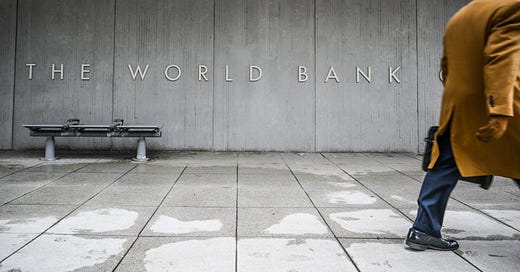The Most Predictable Global Financial Crisis
Though the impending emerging market debt crisis may be predictable, it may not be avoidable.

In late 2008, soon after Lehman Brothers went bankrupt, Queen Elizabeth famously asked why nobody had warned her of the impending global economic and financial crisis.
In the wake of the COVID-19 pandemic, the world is likely to experience another global financial crisis next year, but this time Queen Elizabeth will have been duly warned. In unusually forthright language, the World Bank is now alerting anyone who will listen that a wave of emerging market debt defaults could lead to a global financial crisis.
The World Bank’s warnings are especially dire considering that they are coming from Carmen Reinhart, the Bank’s chief economist and a renowned international expert on the history of emerging market debt crises. She is now quite certain that the large amount of debt that emerging market economies are taking on to fight the COVID-19 pandemic will give way to an unprecedented wave of debt crises and restructurings. She further cautions that a global financial crisis could follow, especially given the size of the emerging market economies and their interconnectedness in the global economy.
There is good reason to think that Reinhart is right. Even before the pandemic, the emerging market countries had record high debt levels and, in all too many cases, shaky public finances. Thanks to the pandemic, many are now experiencing their worst recessions in 90 years, and their budget deficits have ballooned to levels that have no precedent in living memory.
Another way of stating the World Bank’s prediction is as a question: If we have had emerging market debt crises in the past with less severe recessions, a lower debt level, and healthier public finances than we have today, why would we not have a more serious crisis this time, when economic conditions are so much worse than they were before?
And the follow-up question: If debt crises in individual emerging market economies shook the global financial system on many previous occasions, why, when the emerging market economies have greater weight in the global economy than they have ever had before and are all simultaneously being gut-punched by the pandemic, would we not experience am even larger crisis now?
The questions answer themselves.
A closer look at Brazil and South Africa, the largest economies in Latin America and Africa respectively, gives further reason for pessimism about the emerging market debt outlook. Even before the pandemic, both countries had debt levels that were disturbingly high for an emerging market economy. Since the pandemic, both countries’ budget deficits have ballooned to around 15 percent of GDP while their public-debt-to-GDP ratios have skyrocketed to around 100 percent in Brazil and around 80 percent in South Africa.
These countries’ policymakers now find themselves in an untenable situation. If in an effort to stabilize debt levels at a time of real economic weakness, they were to try to reduce their countries’ budget deficits by spending cuts or tax increases, they risk digging themselves ever deeper into a recession and damaging their tax bases. Yet, on the other hand, if they do not engage in real budget-belt tightening, they risk having their countries’ debt levels continue to rise at an exponential rate, which will make their budget deficits all the more difficult to finance.
To be sure, in a world of ample global liquidity where investors are desperate for yield, even insolvent countries find that they are able to finance their deficits by piling up even more debt. But as Herb Stein was fond of observing,something that cannot go on forever will eventually stop.
In surveying today’s global financial landscape, the Queen of England, together with the world’s economic policymakers, would do well to remember Stein’s aphorism. Maybe then, once global liquidity dries up and the emerging market debt crisis begins, they will not be so surprised.









